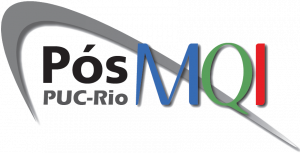Research lines
 In the context of the program’s strategic planning, its research lines are carefully reviewed periodically, with the purpose of reflecting new demands for Metrology and its related functions of Basic Industrial Technology. Aligned with the profile of professional training that is desired to give in metrology (from the perspective of innovation, quality and sustainability), the following three lines of research were implemented from 2012:
In the context of the program’s strategic planning, its research lines are carefully reviewed periodically, with the purpose of reflecting new demands for Metrology and its related functions of Basic Industrial Technology. Aligned with the profile of professional training that is desired to give in metrology (from the perspective of innovation, quality and sustainability), the following three lines of research were implemented from 2012:
#1 – Instrumentation & Measurement:
It studies all aspects related to the design, development, evaluation and application of measuring instruments and systems for the most diverse areas of knowledge and quantities, including those whose units are defined by the International System of Units (SI) and others related to human, social and biomedical sciences. It is structured in a series of research and development laboratories, in PósMQI itself and in collaboration with other Departments of PUC-Rio, and formalized by a set of elective disciplines that include the most important concepts to be considered in any instrument or measurement system. It seeks constant alignment with society’s most current needs, notified in ensuring metrological reliability, including regulatory and regulatory aspects, also supporting companies and R&D centers in various industrial sectors, which often need to develop or improve measurement techniques or systems.
#2 – Strategic Management of Innovation and Sustainability:
It aims to research topics such as the elaboration of metrics and eco-efficiency and sustainability indicators; corporate carbon strategy; adaptation and mitigation strategies to climate change, management models in innovation and sustainability; green entrepreneurship; organizational learning and metrological culture; regulation, risk assessment and management. The elective disciplines offered within this line of research include multi- and interdisciplinary themes related to metrology, innovation and sustainability. It offers a differential in relation to classical courses and approaches to innovation and sustainability management, because it seeks to highlight the importance of measurement science and its uncertainties, standardization and regulation, intellectual property and conformity assessment in the cycle of innovations and sustainable solutions of companies.
#3 – Smart Grids:
The so-called Smart Grids play a major role for the modernity of the electricity sector, impacting the life cycle as a whole, from generation, transportation and commercialization, to the final use of electricity, consumption. Smart Grids reflect a comprehensive and strategic concept capable of inducing a revolution in the transformation and modernization of the electricity sector by making it easier for utilities and energy consumers to adopt innovative techniques, change shapes and habits to supply and consume energy. The Smart Grid System – innovative integration of information technology with the electrical power system – includes communication systems and network infrastructure, involving the installation of sensors in the electricity grid as well as information technology. It thus establishes reliable communication in a double track with wide coverage of the various devices that integrate it, allowing the automation of assets. Among the benefits of Smart Grids stand out: efficiency (lower energy consumption of the concessionaire to provide a better quality service to customers, strengthening the consumer for energy use) and reliability (the Smart Grid accurately identifies performance irregularities in the network assets, allowing the concessionaire to repair or replace them quickly before there is a power outage). The Intelligent Network allows to completely isolate the impact of an irregularity in the system, so that a smaller number of customers are affected, as well as reduce the impacts of energy loss, whether technical or commercial. Smart Grids allow the generation of energy by the consumer, distributed generation, that local storage systems are integrated into the electrical system, in addition to enabling the insertion of electric vehicles. Because of all these characteristics and advantages, the Smart Grids contribute to the strong social and environmental demands, enabling the delivery of a safer and more reliable energy, and less environmental impact.


